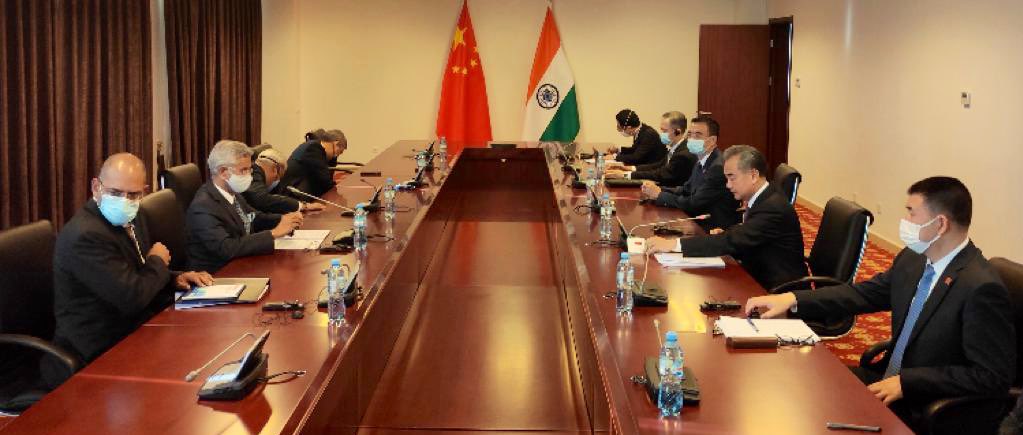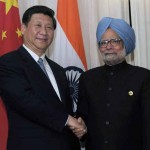IDR Blog
SCO Meet in Dushanbe

The Taliban offensive in Afghanistan is raging on in wake of the US troop withdrawal by August 31. Taliban claim control of 85 percent territory of Afghanistan. In a statement issued in Badakshanand Takhar provinces, Taliban have ordered tribal elders and mullahs to hand over girls over the age of 15 and widows under the age of 45 to the ‘Emirates’ cultural commission to marry Talibanfighters. Taliban also shot dead 22 Afghan soldiers who had surrendered.
In such backdrop, main focus of the SCO Foreign Ministers meet as well as the SCO Contact Group on Afghanistan in Dushanbe, capital of Tajikistan on July 14 was naturally on the deteriorating situation in Afghanistan. The meet was attended by foreign ministers of SCO states (India, China, Kazakhstan, Kyrgyz Republic, Pakistan, Russia, Tajikistan and Uzbekistan) as also by representatives from countries with observer status with SCO including Afghanistan’s Foreign Minister Haneef Atmar.
External Affairs Minister S Jaishankar addressing the meeting of the SCO Contact Group on Afghanistan said that the world, region and the Afghan people all want the same end state: one, an independent, neutral, unified, peaceful, democratic and prosperous nation; two, ceasing violence and terrorist attacks against civilians and state representatives, settle conflict through political dialogue, and respect interests of all ethnic groups, and; three, ensure that neighboursare not threatened by terrorism, separatism and extremism.
The foreign ministers of the SCO member countries issued a joint statement, highlights of which are:
-
- SCO member states are interested in Afghanistan’s development as a peaceful, stable and prosperous country, and confirm their respect for the traditions and culture of all peoples living in Afghanistan.
- Reaffirm respect for sovereignty, independence and territorial integrity of Afghanistan – intent to facilitate development of Afghanistan as a country free from terrorism, war and drugs.
- Condemn continuing terror attacks in Afghanistan calling for their cessation as soon as possible.
- Activities of international terrorist organizations remain one of the key factors of instability in Afghanistan.
- Deep concern over escalating tensions in Northern provinces of Afghanistan.
- Important for SCO member states to enhance joint efforts in counterterrorism, separatism and extremism.
- All parties involved in Afghanistan’s conflict should refrain from using force and actions that may lead to destabilization and unpredictable consequences near borders with SCO states.
- Reaffirm cooperation with Afghanistan on countering security threats in the region – all forms and manifestations of terrorism and drug trafficking, jointly opposing double standards in resolving these tasks.
- Global community should take active joint efforts for handling Afghan refugees.
- Reaching an early settlement in Afghanistan is major factor in maintaining and strengthening security and stability in the SCO space – people of Afghanistan to intensify their efforts to restore peace, promote national economic development and counter terrorism, extremism and drug-related crime.
- Conflict in Afghanistan can only be settled by political dialogue and an inclusive peace process conducted and led by the Afghans themselves.
- Global organizations should strengthen cooperation with UN playing central coordinator to stabilize and develop Afghanistan.
- Appreciate diplomatic support for the peace process in Afghanistan including ongoing talks at Doha, extended Troika, Moscow consultations, Tashkent venue and Heart of Asia – Istanbul process in Dushanbe on March 29-30, 2021.
- Inter-Afghan negotiations must consider interests of all ethnic groups.
- Resolve to consistently implement the roadmap for further action by the SCO and continue deepening cooperation with Afghanistan in politics and security, economic and humanitarian spheres.
Before the above meetings, Jaishankar called on President Emomali Rahmon of Tajikistan. He also met his Afghan counterpart Haneef Atmar following which Afghan foreign ministry issued a statement saying that Atmar and Jaishankar discussed the political and security situation, the peace process, and India’s cooperation with Afghanistan in various fields, including the joint fight against terrorism and the establishment of lasting peace and stability in Afghanistan and the region. Atmar spoke of escalating Taliban attacks in collusion with foreign fighters and regional and international terrorist networks. He underscored India’s constructive role in strengthening regional consensus on the Afghan peace process.
Atmar also had a separate meeting with Pakistan’s foreign minister Shah Mahmood Qureshi July 13; describing to him the presence of foreign fighters and regional and international terrorist networks alongside the Taliban as a major threat to the region. He emphasized the need for practical cooperation between regional countries, particularly Pakistan, in closing shelters and ceasing funding sources of the Taliban, and encouraging the group to resume meaningful talks and find a political solution. Qureshi must have been laughing inwardly.
There is no doubt the both the SCO Foreign Ministers Meet and the SCO Contact Group on Afghanistan has displayed a lot of goodwill towards Afghanistan. But considering the ground situation in Afghanistan and the predicament Afghans face, does this only amount to diplomatic jargon or will SCO take any specific concrete measures beyond these assurances?
Consider the following:
-
- Taliban are clear they want an Islamic Emirate under Taliban rule.
- Their statements issued in Badakshan and Takhar is proof how they will treat women. Compare this to SCO wanting respect for the traditions and culture of all peoples living in Afghanistan.
- Taliban want Sharia imposed throughout Afghanistan.
- With Taliban linked to Al Qaeda, Haqqani network and other terrorist organizations, can Afghanistan be free of terrorism given the involvement of foreign fighters, and the fight over controlling the narcotics trade, minerals and oil reserves?
- Where SCO members are opposed to “double standards” can they take action against Pakistan and if so what?
- Has Taliban shown any sincerity in peace talks till now? For them national reconciliation implies acceptance of Taliban rule in Afghanistan which would never be acceptable to non-Pashtuns.
Above all, can Afghanistan stop the Taliban offensive despite all the brave talk and for how long? According to General David Petraeus, former commander coalition forces in Afghanistan without the assurance of American support, Afghan forces will do what some of them have already done – desert their posts, flee the Taliban or surrender. Petraeus also said, “The American withdrawal, and the likely strife with Taliban/Haqqani network taking control of more areas, will make it difficult for India to carry out diplomatic activity, development and other assistance.”
Russia has said that after the US withdrawal from Afghanistan there can be no military intervention by any foreign power. More impotantly Russia has called Taliban the current reality in Afghanistan and that it is for India to decicide to what extent it wants to be involved in Afghanistan.
Post your Comment
One thought on “SCO Meet in Dushanbe”
 Loading Comments
Loading Comments




The monster in the shape of current sit in Afg has just started taking shape: will be fully grown by 31 Aug 21 if not earlier. The 15 odd points wish list agreed to by all attendees is mere like a diplomatic protocol, the truth is far more bitter. Taliban can’t except defeat, denial or any kind of opposition to their dictates, so violence is inevitable. There is no one to physically check mate them from within Afg. Soon There will be Islamic emirate in Afg, and it sure will spill over to neighbouring regions, specially Pak. Persecution of local civilian population as per sharia will create big refugee problem. India seems too late to be on the discussion table to confront Taliban. Avoiding them any further makes no sense.